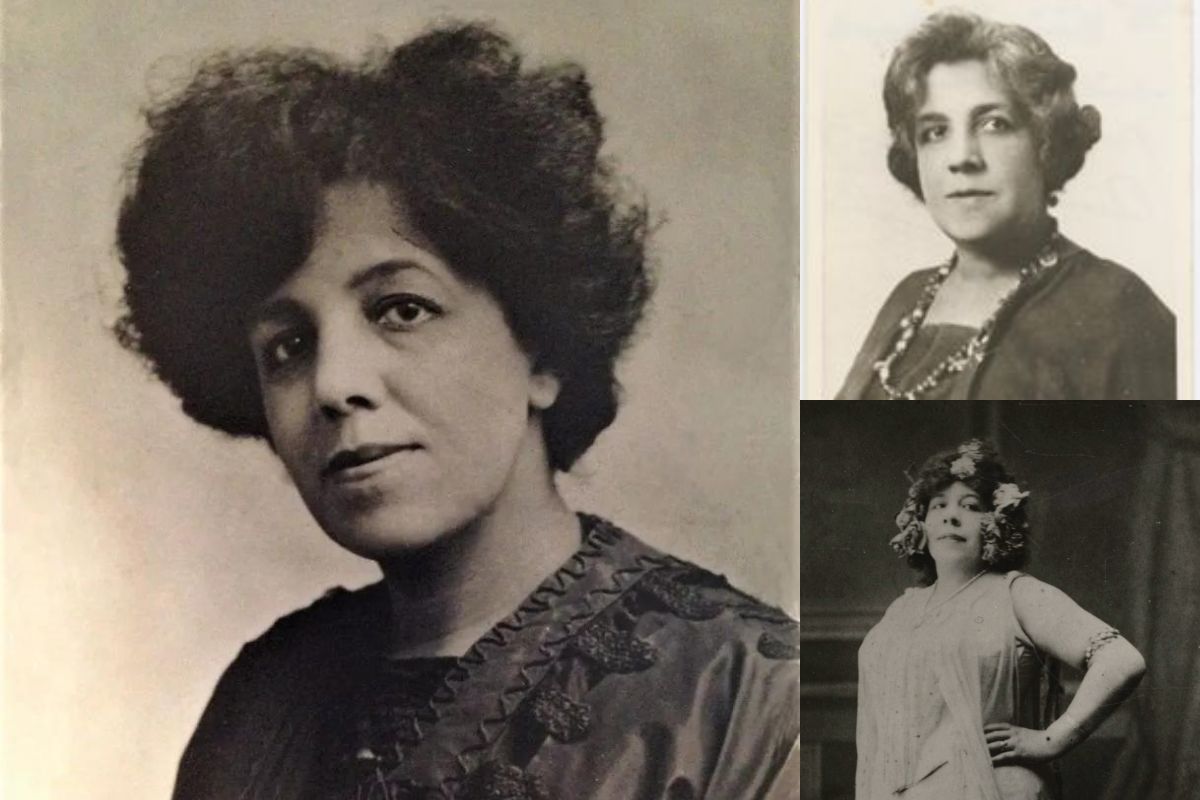

African-British composer, teacher, and singer was called to speak at the Second Pan-African Congress in 1921 by famous American activist and academic W. E. B. Du Bois on problems Africa was facing as a result of European colonialism.
She had to decline the renowned event since she was taking care of her talented contralto singer sister who was gravely ill.
The author in question was Amanda Aldridge, a prolific Romantic parlour songwriter and instructor of musicians.
My sister is helpless, as you know… Aldridge said to Du Bois, “I cannot leave for more than a few minutes at a time. Ten years later, her sister Luranah Aldridge tragically committed suicide.
The Aldridge family’s legacy is extensive, fascinating, and motivating. Why don’t we all know Amanda Aldridge‘s identity today and who was she, then? Here is all the information you require regarding the composer and educator.
Table of Contents
In the 19th and 20th centuries, Amanda Aldridge, a British opera singer, teacher, and composer, went under the pen name Montague Ring. She lived from 1866 to 1956.
Ira’ Aldridge, an African-American Shakespearean actor who performed in London’s Royalty Theatre in 1825 and earned the nickname “African Roscius,” was her father.
Her mother was a Swede named Amanda Brandt, and her sisters were named Rachael and the famed operatic contralto Luranah Aldridge who, but for sickness, may have become history’s first artist of African descent to appear at Bayreuth Opera House. Ira Daniel Aldridge and Ira Frederick, a pianist, were their brothers as well. Sadly, like their sister Luranah, they both passed away at an early age.
At the Royal College of Music, Amanda Aldridge studied composing and singing under Frederick Bridge and Jenny Lind, who is most known for playing herself in the musical The Greatest Showman.
Amanda Aldridge embarked on both performance and writing up until a throat ailment brought on by laryngitis ended her vocal career. She taught her life’s work, working with lyric tenor Roland Hayes. She committed herself to imparting knowledge and among her prestigious students were lyric tenor Roland Hayes and singer, pianist, and composer Lawrence Benjamin Brown. As a result, she left quite a legacy in London’s African-British communities and the British music scene.
Aldridge made a profoundly impactful contribution to parlour music while using the alias Montague Ring. She produced dozens of instrumental compositions in addition to more than thirty songs. They included several rhythmic influences and genres and were widely popular, selling well and pleasing many households.
Three Arabian Dances, Lazy Dance, and songs like “Little Southern Love Song” and “Little Missie Cakewalk” are only a few of her compositions.
She was able to explore her mixed-race origins with the aid of several of Aldridge’s songs, which was encouraged by her tutor Jenny Lind. She was active in the London African-British community and became friends with Samuel Coleridge-Taylor and his family.
Patricia Hammond, a mezzo-soprano and author, tells Classic FM that she “sang Samuel Coleridge-Taylor’s songs and was friends with his daughter Avril.” Including Paul Robeson, Marian Anderson, and Lawrence Benjamin Brown, she taught singing and diction to some of the most illustrious African-British, British-Caribbean, and African-American figures in music and play.
She not only taught them but was incredibly kind in making introductions and sustaining a community of support, according to Hammond. ‘Summah is de Lovin’ Time’ and ‘Tis Morning’, two poems by the eminent African-American author Paul Laurence Dunbar, were turned into songs by Aldridge, who also wrote Three African Dances for piano, which was likely her best-known work when she was alive.
According to mezzo Patricia Hammond, the nicest thing about parlour songs is their “instant humanity”.
It’s “the fact that they wear their heart on the outside,” she says. These songs are made to be shared among friends and to bring people together. recognizable music. I recall a fiery woman who was seated next to me in an audience once saying, “I want something mellifluous!” These have melodic qualities.
The majority of the time, parlour songs were composed for voice and piano and intended for usage and enjoyment in living rooms.
Aldridge attended Paul Robeson’s West End performance of Othello in 1930 and gave him the gold earrings her father had worn while portraying the character.
Sadly, Amanda Aldridge has lost popularity after enjoying great fame during her lifetime. Her most well-known composition, “Three African Dances,” for piano, was created in 1913 and was influenced by West African drumming. ‘Three Arabian Dances’ (1919) and ‘Carnival Suite of Five Dances’ (1924) were two more of her best-known compositions.
Sign up to receive our email, delivering the latest stories straight to your inbox.
